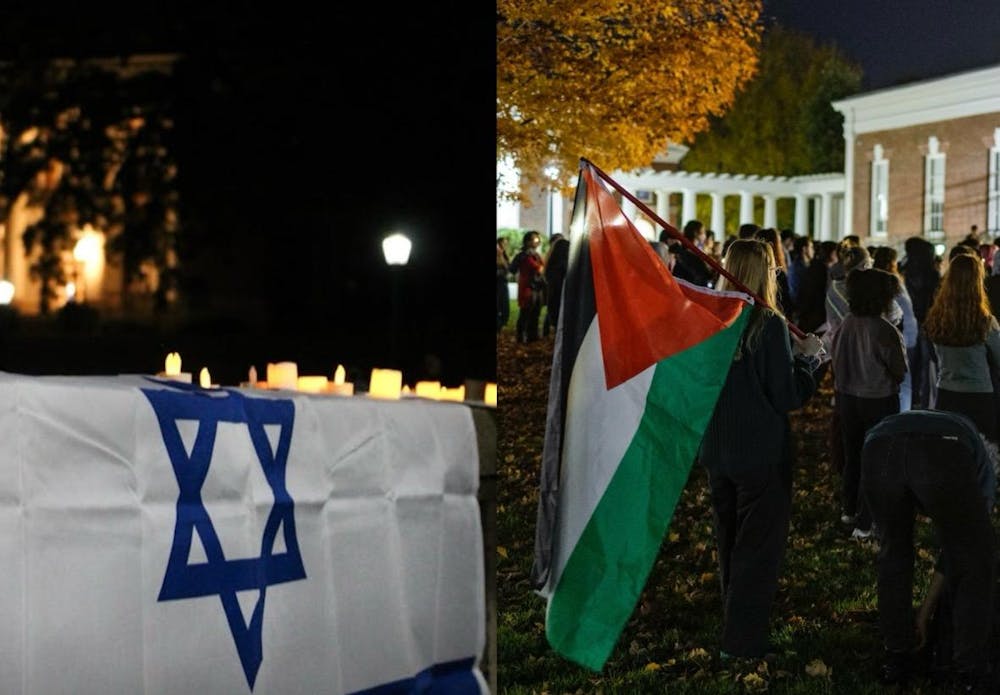October 7, 2024. It has now been a year since Hamas invaded Israel and murdered 1,200 of its citizens. Since then, several waves of destruction and death have washed over the Palestinian, Israeli and now Lebanese peoples, unjustly displacing communities and executing the civilians within them. But what strikes me the most from the headlines — asides from the extreme and horrific new milestone in casualty lists — is the rhetoric often used to describe these casualties. Many members of the Jewish and Muslim communities, both abroad and worryingly at our own University, promote rhetoric that communicates concern only for their own deaths rather than the universal tragedy of human life lost. It is time we embrace the mutual humanity we share instead.
In the Middle East, a conflict that started with celebrations of civilian murder has morphed into far greater degrees of death. For members of one community, the conflict has culminated in calls for the erasure of Gaza and the ongoing invasion of Lebanon. For the other community, Iran’s unleashing of an exceptionally large missile barrage demonstrates how this escalation continues. These acts of extreme violence are ignorant of both the present realities of the communities involved and the importance of the civilian lives harmed by these events. Dehumanization of civilian lives in this way can lead to consequences as horrific as the genocide of communities — exemplified in both the Holocaust and the indiscriminate violence in Gaza. The last year then shows us how the dehumanization of civilian casualties has normalized the proliferation of their death.
As it has abroad, the danger of dehumanization has been and continues to be felt at our University, specifically in the ignorance displayed by members in both communities. Statements released last year by Jewish and Muslim organizations perfectly reflect reciprocal insensitivity of rhetoric. After the October 7 attacks on Israel, the Students for Justice in Palestine chapter at the University celebrated the “unprecedented feat” and conflated murdered Jewish citizens with “occupation soldiers.” On the other hand, Chabad’s statement during the Palestinian encampment at our University described these protesters as “depraved pro-terrorist humans motivated by a pure hatred of Jews.” Nowhere present in either of these announcements was an explicit expression of solidarity with the civilians who had been killed on the other side of that noxious wall dividing Gazans and Israelis — instead, rightful mourning and protest for community suffering was castigated.
Over the past year, many members of each community have continued to exclusively acknowledge their own hardships at the University. When Jewish students are attacked or Israeli flags vandalized, it is members of the Jewish community who comment in sadness. And when Muslim students are dehumanized or pro-Palestinian encampments are violently dispersed, it is predominantly the Muslim community that rightfully protests. It feels then that we at this University have two disconnected communities that separate the acknowledgment of suffering in a way that does nothing to inhibit further experiences of discrimination.
When we degrade the suffering felt by members of other communities as unworthy of sympathy and solidarity, the result is the proliferation of discrimination against these people. In doing so, a dangerous sense of inequality between communities is permeated across lives that are equal in their universal human dignity. The silence held in the face of others’ suffering not only dehumanizes them as unequal but also contributes to the same pattern of violence so brutally impacting our own communities.
When our silence is both an expression of and contributor to another community’s suffering, the remedy is clear — conversation. Conversation for conciliation has already been engaged in with success elsewhere. At Dartmouth College and Syracuse University, professors have led groups of Jewish and Muslim students to come together in humanizing conversation. Students who have never previously met a member of the other religion have now had intimate conversations with each other, allowing for conciliatory connections. And though not without limitations, there have been clear displays of tangible improvements at these institutions compared to our own University. As shown at these universities, any resolution to community conflict starts with an embrace — it begins with embracing the common humanity we hold and seeing each other as civilians.
The last year has demonstrated how divided rhetoric and the dehumanization it causes can contribute to an escalation in extreme violence and harm to communities. Yet the positive responses at institutions like Dartmouth and Syracuse show us that, through a conciliatory embrace, we can prevent such infectious hate from further harming the Jewish and Muslim communities at our University. We must, as the students of these communities, ensure that humanization, not hate, is the focal point of our interactions.
Wylie Brunman is a senior associate opinion editor who writes about politics for The Cavalier Daily. He can be reached at opinion@cavalierdaily.com.
The opinions expressed in this column are not necessarily those of The Cavalier Daily. Columns represent the views of the author alone.







